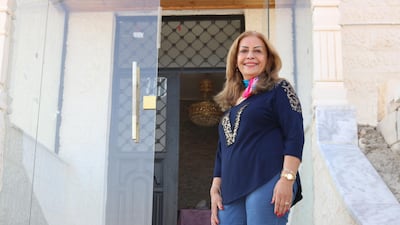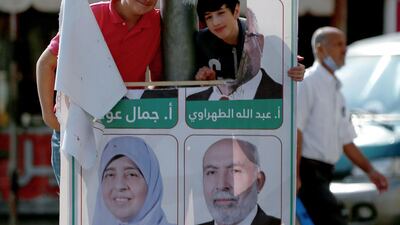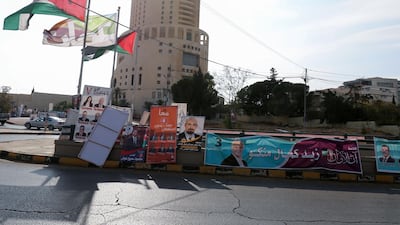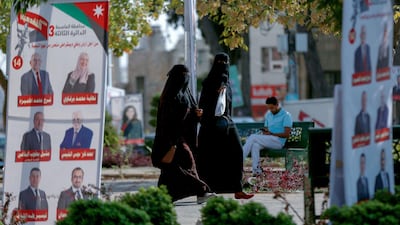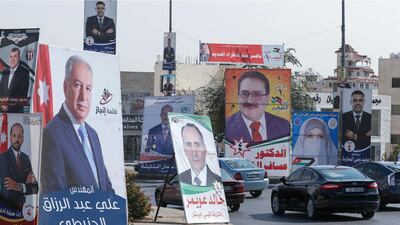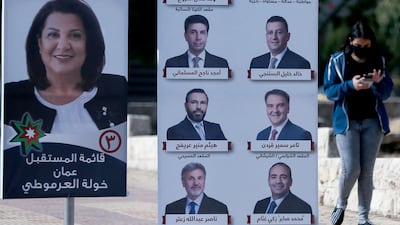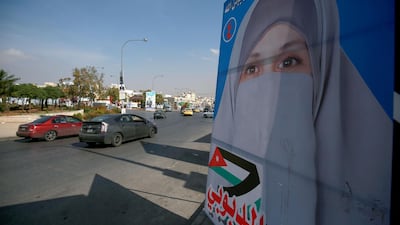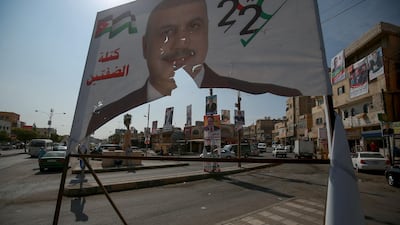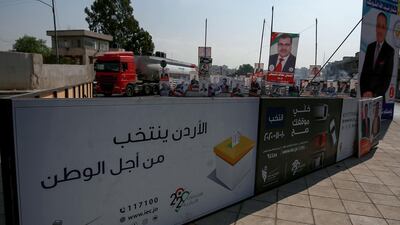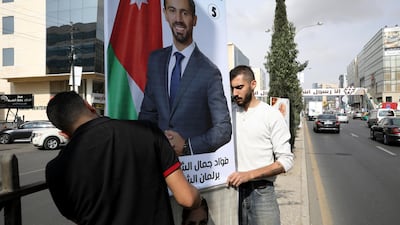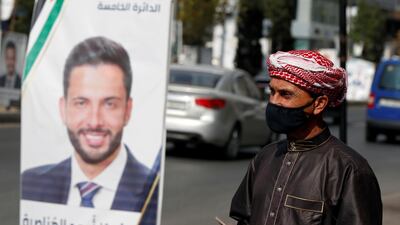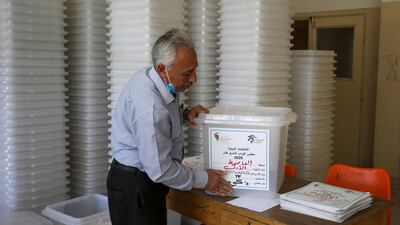Amid a surging pandemic and record unemployment, one group is coming to the forefront in Jordan’s parliamentary elections – women.
A record 364 women are running in the country’s November 10 parliamentary elections, a 44 per cent increase from 2016 and part of an overall 26 per cent rise in the number of overall candidates.
For the first time, three all-women electoral lists and dozens of women are competing outside of Jordan’s 15-seat quota for women in parliament.
Running on campaign themes ranging from job-creation to overhauling the overburdened health sector, candidates say they want to put an end to “tokenism” and push against patriarchal tribal norms.
“Before, some men would just add a woman with the right family name to their list to pick up a quota seat,” said Wafa Yousif Tarawneh, candidate for the western city of Karak.
She said the lists preferred a woman who has a recognisable family name “but is not too outspoken or independent”.
Ms Tarawneh's own negative experience of being marginalised on an electoral list in 2016 led her to form Jordan’s first all-women’s electoral list this year from her home province of Karak.
Within weeks of forming her electoral list, which has five women candidates representing different regions and tribes, two additional all-women’s lists were announced, one in the northern province of Ajloun and in the tribal Central Badia district.
“People think that women’s empowerment and rights is only an Amman phenomenon,” Ms Tarawneh said.
“We are proving that in the governorates and here in Karak, the political heartland of Jordan, there is a desire for and support for women MPs, perhaps even stronger than in the capital.”
Karak community activist Asma Hijazin agrees.
“Women are the key to progress and change,” said Ms Hijazin, who was inspired to form an association to support women candidates.
“Next election I plan to run as a candidate, and many women across Jordan are thinking ‘why not us?’.”
By running outside the quota, many women find themselves now competing against relatives, splitting the tribal vote and drawing ire from relatives who believe the male candidate should have priority.
Ms Tarawneh’s campaign posters were removed from her home village and women voters say they are split between the desire to vote for a women and family pressures.
Yet there has been some enthusiasm ahead of the polls, despite record-low public interest in the election in general.
“Seeing all these strong women candidates makes you think that parliament can actually represent us,” Amira Samer, 43, a pharmacist from Amman, said.
Samiha Sarayreh, a former principal and a women’s list candidate, said that the quota has prevented voters from taking women candidacies seriously.
“Either the government should make sure there are equal seats for men and women or scrap the quota altogether,” said Ms Sarayreh.
“We can do it on our own [without the quota].”
Rising women’s confidence comes after the 2016 polls saw a record five women win beyond the 15-seat quota.
“Women candidates are definitely becoming more accepted and this is a good thing,” said Musa Shteiwi, professor of political sociology at the University of Jordan.
“We are seeing more women encouraged to run for office, which was the purpose of the quota.”
Some smaller tribes now prefer to run women candidates as they think they have more chance of gaining a seat due to the quota, said Mr Shteiwi, but women running competitively against men has still not been widely accepted at the society-level.
Women candidates say, however, that they are determined to make Jordan’s “women’s wave” a permanent fixture.
Ms Tarawneh and other women’s candidates plan to form an all-women’s political party, and there are also plans to establish NGOs to recruit, train and support women for political office.
“Women are seen as less corruptible, more trustworthy,” Mr Tarawneh said.
“Amid frustration with last parliament, people are supporting women for a change.”
